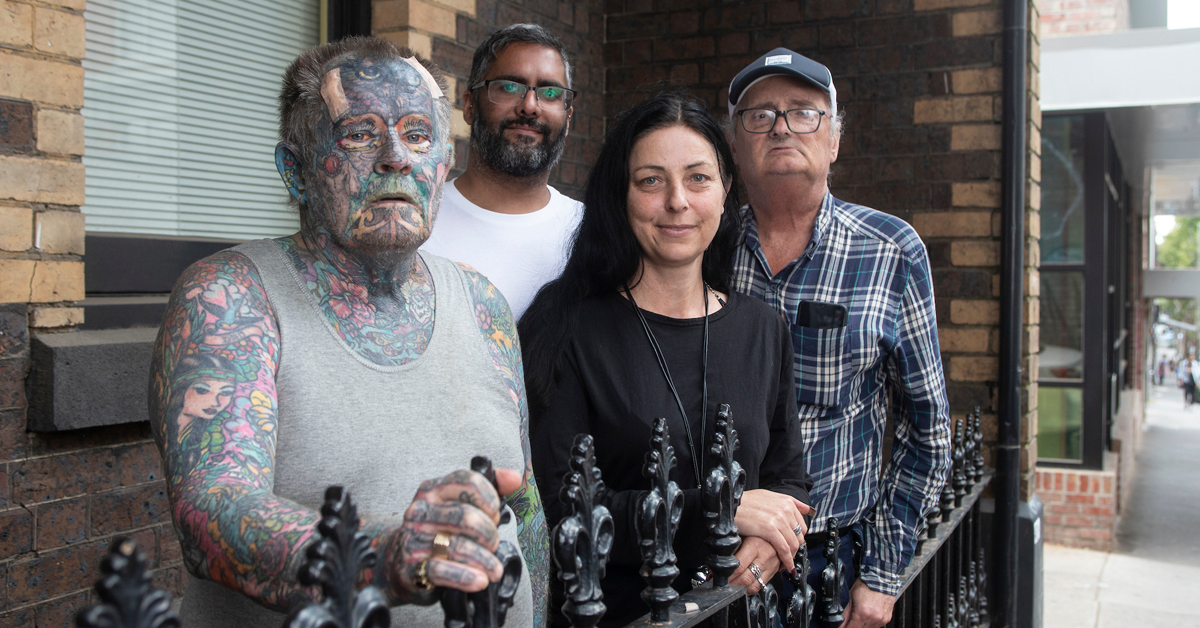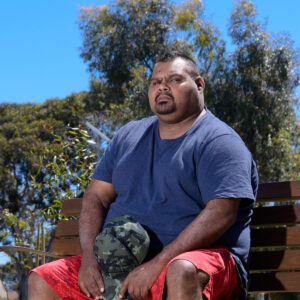
Pictured above (L-R): John, Nigel, Jody and Dave pictured in Collingwood in February 2020, when we spoke to them as part of our Blueprint for Better Health.
Our region is incredibly diverse. This makes us strong and resilient.
We believe that all people – every individual, every group, every community – should have a fair chance to reach their full health potential without being disadvantaged by social, economic and environmental conditions.
This is the principle of health equity. It is the concept that guided us in developing the North Western Melbourne Primary Health Network (NWMPHN) Access and Equity Framework 2021–24 (.pdf).
The Framework commits and enables us to tackle the challenges inherent in ensuring equal access to health services in a culturally and geographically varied community. NWMPHN encompasses 13 Local Government Areas across 3,212 square kilometres containing more than 1.6 million people who, between them, speak more than 200 languages.
Across the region, significant differences in health status exist between and across population groups.
- Some groups have shorter lives and poorer health than others.
- Some have limited access to health care.
- Some services are not used by all those that need them.
- Some localities and communities have a very high burden of disadvantage.

The Framework aims to address these differences through a three-year Action Plan. It commits NWMPHN to five priorities:
- to show leadership and commitment to equity
- to embed equity into everything we do
- to use data and evidence to support action
- to engage with communities, including people with lived experience, and to partner with collaborators
- to build capacity and skills.
Our approach recognises that health is not just a matter of medical care. To ensure that access to treatments and advice are fair for every part of our region it is crucial to recognise that communities differ widely in self-definition – by language, sexual orientation or faith, for instance – and that this can impact their interactions with the health system.
The Framework is built on six guiding principles to guide how we work to deliver more equitable health outcomes:
- A human rights-based approach to health.
- Recognising the impact of non-medical factors including gender, education, employment, financial situation, cultural and ethnic background.
- Involving the community in decisions regarding healthcare and service access.
- Recognising, respecting and nurturing people’s unique cultural identity.
- Recognising how a range of individual characteristics, experiences and geographic factors can combine to create inequity.
- Ensuring accountability with all activities monitored, evaluated, and reported on through a health equity lens.
“Addressing health inequities is a complex process, and requires commitment over the long-term,” says NWMPHN CEO Christopher Carter.

“We recognise that by working together with health and treatment providers, and with the diverse communities in our region, we can create meaningful and ongoing change.”
Download the NWMPHN Access and Equity Framework 2021–24 (.pdf).




